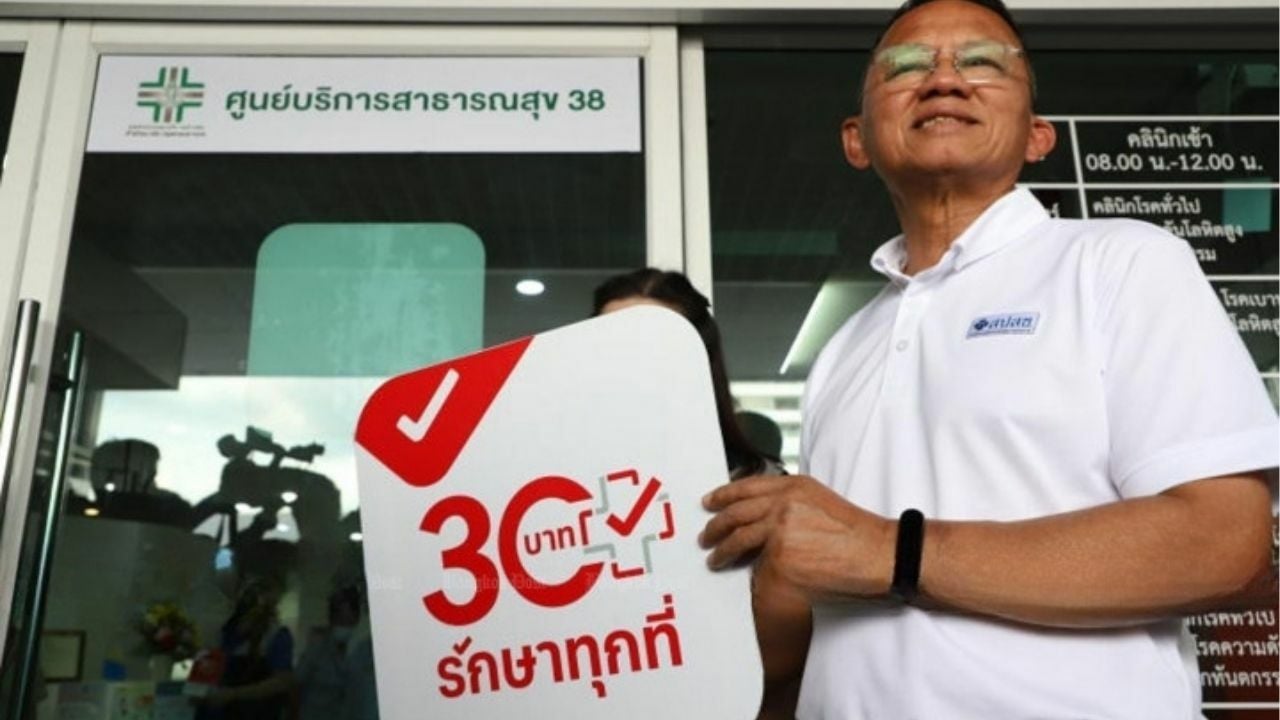

Public Health Minister Somsak Thepsutin has assured the public that the 30-baht “gold card” Universal Healthcare Coverage scheme remains financially stable, with hospitals holding reserve funds of 46 billion baht after liabilities.
During a meeting of the National Health Security Office (NHSO) board, Somsak addressed concerns regarding hospital budget deficits, which some attribute to the scheme’s compensation mechanism. Critics argue that reimbursements do not accurately reflect treatment costs.
Somsak clarified that, in the 2024 fiscal year, the NHSO reimbursed approximately 220 million out of 304 million outpatient visits by scheme subscribers. He noted that hospital income also derives from the Social Security Fund, civil servant benefits, and public out-of-pocket payments.
Only 13 hospitals registered under the scheme were found to have negative reserves.
“This does not indicate a systemic failure of the gold card scheme,” Somsak stated. “We are investigating other possible causes and will send teams to these hospitals to assess and resolve their issues.”

NHSO Secretary-General Doctor Jadet Thammathataree announced plans to engage globally recognised auditing firms, including PwC, EY, Deloitte, and KPMG, to review the NHSO’s budget allocation system, following a ministry directive.
The audits will evaluate essential benefits and potential cuts, including programs for non-communicable diseases (NCDs), with a full report expected in three months.
A new committee will be formed to evaluate cost structures and reimbursement rates across public healthcare funds to prevent financial strain on hospitals. This committee will coordinate with the Social Security Office and the Comptroller General’s Department, chaired by Finance Minister Phichai Chunhavachira, reported Bangkok Post.

NHSO Board member Doctor Wichai Chokewiwat confirmed that only a small number of hospitals under the scheme face financial distress. “With 46 billion baht in net reserves, we are not just stable — we are thriving,” he said.
Dr Wichai acknowledged the disparity in reimbursement rates, with the gold card scheme offering the lowest compensation compared to other public healthcare programmes. However, he noted that the gold card serves the largest population segment, managing a significantly higher patient load.
The story Thai healthcare scheme stable with 46 billion baht in reserves as seen on Thaiger News.
